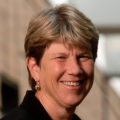2015 a2ru National Conference
Theme
The 2015 a2ru National Conference, GroundWorks: Improving and Supporting Practice in the Third Space, will be an intimate working conference designed to convene partners and allies to address the next generation of opportunities and challenges facing arts transdisciplinary practice, peer review, infrastructures, and partnerships in research universities. Registration is open to all.
GOALS & OUTCOMES
- 1) Network and exchange with like-minded faculty, administrators, thought leaders and practitioners.
- 2) Develop and test set of shared values and criteria for peer reviewing, critiquing, and understanding research and creative practice in the third space.
- 3) Lay groundwork for shared practices guidelines for third space research and practice in S.E.A.D, Arts + Health, and Arts + Entrepreneurship endeavors.
- 4) Explore emerging cultural policy platforms through high-impact regional partnerships.
Open, guided critique sessions for six selected transdisciplinary exemplars will help build the foundation for a new peer review process which will have implications for research, curriculum development, collaborative projects and tenure and promotion in higher education.
Host
At Virginia Tech, we’re reimagining how education and technology intersect. This approach transforms the ways we teach and learn, perform research, and engage with communities around the world. Hokies collaborate with diverse team members and cross the traditional lines between fields and disciplines to tackle global-scale problems. We push the boundaries of knowledge in order to make a difference in the world. Members of the Hokie Nation have a clear vision of how we can serve in our personal, professional, and civic pursuits. We are a force for positive change, driven by our motto, Ut Prosim (That I May Serve).
The arts are deeply embedded and a highly valued part of life at Virginia Tech. Through classroom experiences, co-curricular opportunities, public engagement, and research endeavors that traverse traditional boundaries, Virginia Tech students, faculty, alumni, and all the communities we serve reap the benefits of this creative alliance.
Featured Speakers


Shannon Jackson is the Associate Vice Chancellor for the Arts + Design at UC Berkeley where she is also the Cyrus and Michelle Hadidi Professor of Rhetoric and of Theater, Dance, and Performance Studies. Jackson’s research focuses on two broad, overlapping domains: 1) collaborations across visual, performing, and media art forms and 2) the role of the arts in social institutions and in social change. Her most recent books are The Builders Association: Performance and Media in Contemporary Theater (M.I.T. Press, 2015) and Public Servants: Art and the Crisis of the Common Good, co-edited with Johanna Burton and Dominic Willsdon (M.I.T. Press 2016). Her previous books include Social Works: Performing Art, Supporting Publics(Routledge 2011), Lines of Activity: Performance, Historiography, and Hull-House Domesticity (2000) and Professing Performance: Theatre in the Academy from Philology to Performativity (2004). Other recent projects include the guest-edited Valuing Labor in the Arts with Art Practical, a special issue of Representations on time-based art, and a new online platform of keywords in experimental art and performance, created in collaboration with the Pew Center for Art and Heritage, In Terms of Performance. Jackson’s writing has also appeared in dozens of museum catalogues, journals, blogs, and edited collections.
Jackson has received numerous awards, including a 2015 John Simon Guggenheim Fellowship, the Lilla Heston Award for Outstanding Scholarship in Performance Studies (NCA), the ATHE Best Book Award, Honorable Mention for the John Hope Franklin Prize, the Kahan Scholar’s Prize in Theatre History (ASTR), and the Arts and Humanities Outstanding Service Award. She has received fellowships from the Spencer Foundation and the National Endowment for the Humanities, as well as several collaborative project grants from the Walter and Elise Haas Fund, UCIRA, the Creative Work Fund, the San Francisco Foundation, and the LEF Foundation.
Jackson serves on the boards of the UC Berkeley Foundation, the Berkeley Art Museum/Pacific Film Archive, the Berkeley Center for New Media, and the Oakland Museum of California, as well as on advisory boards for The Crucible and the Headlands Center for the Arts. She has been a plenary speaker at a variety of distinguished venues, including most recently the Venice Biennial, the Goteburg International Biennial, ArtCOP21, the Chicago Humanities Festival, the PUBLIC Theater, Tate Modern, Creative Time, the Sorbonne, the Museum of Modern Art, SFMOMA, Open Engagement, the Ibsen International Festival in Oslo, the Blaffer Museum, The Kitchen, Cooper Union, Maison des Sciences de l’Homme Nord, the Yale School of Drama, Harvard’s Spencer Lecture in Drama, and many other universities and art organizations. She has organized dozens of conferences, symposia, and artist residencies with Berkeley Arts + Design Initiative, the Arts Research Center, the Global Urban Humanities Initiative, Art Practical, Cal Performances, BAMPFA, Open Engagement, The Builders Association, Touchable Stories, American Society of Theatre Research, the American Studies Association, the Women and Theatre Project, Berkeley Repertory Theatre, the Multi-campus Research Group on International Performance, UCB’s Center for Community Innovation, and with the civic governments of Berkeley, San Francisco, and Richmond, California.
Before moving to UC Berkeley in 1998, she received a B.A. in Modern Thought and Literature from Stanford University (1989), a Ph.D. in Performance Studies from Northwestern University (1995), and served as an assistant professor of English and Literature at Harvard University from 1995 to 1998.


Raymond Tymas-Jones Ph.D. served as Dean of the College of Fine Arts at the University of Utah for 12 years and became the university’s Associate Vice President for the Arts. During his tenure, he established the Center for Interdisciplinary Arts in Technology and led the development of the Create CONNECTIONS Project to foster interdisciplinary activity through the infusion of arts and design practices in medicine, science, and business. On July 1, 2018, he became Cornish College’s tenth president.
Tymas-Jones has previously held roles as Chief Administrative Officer for the Utah Museum of Fine Arts, the Pioneer Theatre Company, the Tanner Dance Program, and UtahPresents Performing Arts Series. He has also served as the Associate Dean of the Faculty of Humanities and Fine Arts at Buffalo State College, Director of the School of Music at the University of Northern Iowa, and the Dean of the College of Fine Arts at Ohio University. He has taught and instructed at Washington University, Buffalo State College, University of Northern Iowa, and Ohio University.


Ruth West is an artist-scientist — a creative catalyst. She is a creative technologist bridging big data‚ visualization‚ sonification‚ virtual and augmented‚ reality‚ 3D fabrication‚ and social and mobile media with domains such as neuroscience‚ genomics‚ astronomy‚ urban ecology‚ microbiome‚ entertainment and digital remix culture.
Ruth directs the xREZ Art + Science Lab located in the UNT Art Building and is a professor at UNT who is cross-appointed in three of the university’s colleges: 1) College of Visual Art and Design in New Media Art and Design; 2) College of Engineering in Computer Science; College of Music, Center for Experimental Music and Intermedia; and 3) College of Arts and Sciences, Biological Sciences.
She creates works with multiple entry points that can exist concurrently as aesthetic experiences‚ cultural interventions or entertainment and serve as the basis for artistically-impelled scientific inquiry and tools. This results in technology R&D‚ novel artworks‚ large-scale public engagement and entertainment experiences‚ new knowledge and insight‚ cross-disciplinary educational and research opportunities and industry-academic-community partnerships.
She is developing the concept and practice of DataRemix a reappropriation and recombination practice blending digital remix culture and big data to create novel associations and experiences. Receiving both grant and industry sponsorship her work and has been presented or featured in SIGGRAPH‚ ACM / Eurographics Expressive‚ WIRED Magazine’s NextFest‚ PEROT Museum of Nature and Science‚ UCLA Fowler Museum‚ CAA‚ Ingenuity Festival Cleveland‚ Los Angeles Municipal Art Gallery‚ FILE 09 Sao Paulo‚ IEEE VR‚ Mobisys‚ IS&T SPIE‚ IEEE ICIP‚ the American Journal of Human Genetics‚ Genomics‚ Leonardo‚ LEA‚ Proceedings of the National Academy of Sciences‚ NPR’s The Connection‚ NY Times‚ Genome News Network‚ AMINIMA and Artweek.


Bruce is the Director of Arts & Cultural Management and Museum Studies programs at Michigan State University. Prior to joining MSU, he served as the Mellon Research Project Director at the University of Michigan, ArtsEngine. The goal of this project was to compile the first comprehensive guide to best practices in the integration of the arts into the research university, central to which was a focus on the idea of arts practice as research–perhaps one of the most crucial debates concerning the future of the arts in academia.
Mackh earned a BFA from the School of the Art Institute of Chicago, an MFA from Tulane University, and a PhD in Critical Studies and Fine Art from Texas Tech University. While at Texas Tech, he was awarded a TEACH Fellowship, and was the only Fellow from the School of Art to earn this distinction.


Carol Strohecker’s creative practice, research on learning, studies of complex systems, and “designing so others can design” have contributed to contexts of growth and change, including technology R&D, academic administration, organizational start-up, and community economic development.
A co-founder of the network for Sciences, Engineering, Arts, and Design, spawned through grants from the US National Science Foundation, she inaugurated the roles of Vice Provost at the Rhode Island School of Design (RISD) and Director at the Center for Design Innovation, a multi-campus research center of the University of North Carolina.
Previously Dr. Strohecker was Principal Investigator of the Everyday Learning research group at Media Lab Europe, the European partner of the MIT Media Lab. Prior to MLE, she worked at Mitsubishi Electric Research Laboratories and in the Human Interface Group of Sun Microsystems.
She earned the PhD of Media Arts and Sciences from the Massachusetts Institute of Technology in 1991 and the Master of Science in Visual Studies from MIT in 1986. Dr. Strohecker has served MIT’s Program in Media Arts and Sciences as a Lecturer and as a Presidential Nominee on the MIT Corporation Visiting Committee.
Her collaborative work in interactive media tools and methods has resulted in four US patents. Her awards also include Fellowships with the Massachusetts Council for the Arts and Humanities, the US National Endowment for the Arts, and the Harvard Graduate School of Design.
An alumna of Harvard Law School’s course in Strategic Negotiations and Santa Fe Institute’s Complex Systems Summer School, Dr. Strohecker has served on research and advisory panels for NSF and the European Commission. She was a selected delegate at the 2005 World Summit on the Information Society, which stemmed from resolutions of the International Telecommunication Union and the United Nations General Assembly.


Marc Hebert is the Chief Operating Officer at Estuate, a global information technology (IT) services company. From 2006–2008 he was the first Chief Marketing Officer for Virtusa Corporation, a publicly traded IT services firm. From 1999–2006, he was Executive Vice President, Marketing and Alliances for Sierra Atlantic, where he was responsible for corporate positioning, lead generation, public relations and partner development. Previously, Hebert was Vice President for Oracle Corporation, where he held several groundbreaking positions: the Chief Information Officer role, Internal Audit, Oracle Manufacturing development, and Worldwide Alliances Technical Services. He is a recognized expert on offshore outsourcing and has appeared on CNN’s “Lou Dobbs Tonight,” was interviewed in Investors Business Daily, and has been widely quoted in major media publications, including the Wall Street Journal, Forbes, Fortune, Financial Times, New York Times and Boston Globe about offshore outsourcing. Hebert received a BS in Experimental Psychology from Harvard University and an MBA from Stanford University. He has served on numerous nonprofit boards, including La Mamelle/ArtCom and the Santa Clara Vanguard.


The Senior Advisor for Program Innovation, National Endowment for the Arts is a senior executive at the National Endowment responsible for exploring, examining and identifying innovative and/or emerging practices, programs and endeavors in the arts. In his current position, Mr. O’Brien helped organize two convenings of the nation’s leading artists and scientists in partnership with the National Science Foundation: Re/search: Art, Science and Information Technology and Symbiotic Art & Science: An Investigation at the Intersection of Life Sciences and the Arts. He helps lead an NEA/NSF/NEH working group to investigate research, practice and innovation at the intersection of art, science and the humanities, and serves as project director on a partnership between the NEA and the Department of Defense to investigate the use of Creative Arts Therapies as a formal medical protocol to help heal service members at the National Intrepid Center of Excellence (NICoE) at Walter Reed National Military Medical Center in Bethesda, MD and at Fort Belvoir, VA.


Patty Raun is a professor of performance and voice. Her primary goal is to promote positive transformation by developing healthy and varied voices – both literal and figurative – in individuals, institutions, and communities.
Currently, her research focuses on the use of the tools of the theatre to develop communication skills in science and technology professionals — helping them discover ways to be more direct, personal, spontaneous, and responsive.
Raun served as director of the School of Performing Arts from 2004 to 2016. Since August 2016 she has served as director of the Virginia Tech Center for Communicating Science.




Steven J. Tepper is the dean of the Herberger Institute for Design and the Arts at Arizona State University, the nation’s largest, comprehensive design and arts school at a research university. Tepper, a sociologist, is a leading writer and speaker on higher education and U.S. cultural policy and his work has fostered national discussions around topics of cultural engagement, creative work and careers, art and democracy, and the transformative possibilities of a 21st century creative campus. He is the author of “Not Here, Not Now, Not That! Protest Over Art and Culture in America” (University of Chicago, 2011) and co-editor and contributing author of the book “Engaging Art: The Next Great Transformation of America’s Cultural Life“ (Routledge 2007). “The Creative Campus: Who’s Number 1”, a cover story for the Chronicle of Higher Education in 2004, helped launch the creative campus movement across the US. He has published widely on the topic of education and careers, and his work has appeared in the Chronicle of HIgher Education, Inside HIgher Education, the Huffington Post, FastCompany, the Wall Street Journal, and more.
Prior to ASU, Tepper was on the faculty at Vanderbilt University where he was a chief architect of the Curb Center for Art, Enterprise and Public Policy, a national think tank for cultural policy and creativity. Tepper holds a bachelor’s degree from the University of North Carolina at Chapel Hill; a master’s in public policy from Harvard University’s John F. Kennedy School of Government; and a doctorate in sociology from Princeton University.


Joseph R. Yost is an American politician. A Republican, he was elected to the Virginia House of Delegates in 2011. He represented the 12th district from 2012 to 2018


Jim Agutter is an Associate Professor in the College of Architecture + Planning, the Director of the Spark Design Initiative and the Director of the Bachelor of University Studies in the Office of Undergraduate Studies. He is the founder and past director of the Multi-Disciplinary Design Program and the CEO of Applied Medical Visualizations. He has worked on innovation and information design challenges for more than 18 years.
Jim’s research has focused on the application of 2D and 3D design concepts to large scale, real-time data environments. He has published extensively in the area of information visualization and design challenges in healthcare and cyber-security. In addition, he has numerous technology solution patents, many of which have transferred to industry.
Jim has received numerous awards for his work including the 2004-2005 Creative Achievement Award by the Association of Collegiate Schools of Architecture, 2009 University of Utah Honors Professorship, 2013 Early Career Teaching Award, 2014 University of Utah Beacon of Excellence Award and the 2016 University of Utah Distinguished Innovation and Impact Award.


Greg Esser is the Associate Director of the Desert Initiative at the ASU Art Museum. He has lived, worked and studied in desert regions internationally including the Sinai, Negev, Sahara and sub-Saharan Africa in addition to the American Southwest. He is a graduate of Arizona State University with an MFA in Intermedia and completed his undergraduate study at Oberlin College with a degree in Art and Social Change.
Prior to joining ASU, Esser was the founding director of the Roosevelt Row Community Development Corporation in downtown Phoenix, a non-profit organization focused on community revitalization through arts and culture. Esser has also served as director for three of the largest public art agencies in the United States, namely Denver, Phoenix and Los Angeles County. He worked in public art at the national level as manager of the Public Art Network for Americans for the Arts in Washington, D.C.


David Ehrenpreis is Director of the Institute for Visual Studies and a professor of art history at James Madison University, where he has taught since 1998. He completed his undergraduate degree in foreign languages at Hamilton College and his M.A. and Ph.D. in art history at Boston University. His articles and reviews have appeared in The Art Book, CAA Reviews, Centropa, German Studies Review, Woman’s Art Journal, and Zeitschrift für Kunstgeschichte, among others, and he has curated numerous exhibitions, including one on the work of the contemporary Chinese artist Xu Bing. In addition to receiving support for research from the Arts Council of the Valley, College Art Association, German Academic Exchange Service, and James Madison University, he earned a Certificate of Distinction in Teaching from Harvard University. He resides in Harrisonburg, Virginia.


Ann Markusen, professor emerita, directs the Humphrey School’s Project on Regional and Industrial Economics. Currently, her research focuses on occupational approaches to regional development, and on artists, arts organizations, cultural industries, and cultural activity as regional economic and quality-of-life stimulants.
Before joining the Humphrey School, Markusen was State of New Jersey Professor of Urban Planning and Policy Development at Rutgers University. She has held faculty positions at Northwestern, the University of California at Berkeley, and the University of Colorado. Markusen has been an economic policy fellow with the Brookings Institution and a research economist with the office of the Michigan Speaker of the House. She was a Fulbright Lecturer in regional development economics in Brazil and has written on European, Korean, and Japanese regional economies as well as on North American cities and regions.
From 1995 to 2002, she served as a Senior Fellow at the Council on Foreign Relations in New York and in 2002, as a Visiting Fellow at the Public Policy Institute of California. Markusen recently served three years as the Harvey Perloff Chair in the Urban Studies Department at UCLA and is currently serving a six year term as A. D. White Professor-at-large at Cornell University. In 2010-11, she occupied the prestigious UK Fulbright Distinguished Chair at the Glasgow School of Art, working out of its Urban Lab. She serves on the Advisory Board of the Strategic National Arts Alumni Project.
Markusen served six years on the Committee on Science, Engineering and Public Policy and as chair from 1998 to 2000. She was elected president of the North American Regional Science Association in 2000. In 2001-02, Markusen served as a member of the President’s Commission on Offsets in International Trade. She won the McCoy Award from the American Collegiate Schools of Planning in 2005, and the Prestigious Alonso Prize in regional science in 2006.
She holds doctorate and master degrees in economics from Michigan State University and an undergraduate degree from Georgetown University School of Foreign Service.
Featured Sessions
Fostering a Culture of Transdisciplinarity in the Research University: A Foundation for Supporting Practitioners
Shannon Jackson, UC Berkeley
Raymond Tymas-Jones, University of Utah
Ruth West, University of North Texas
Bruce Mackh, Michigan State University
Strengthening the Groundwork for Transdisciplinary Practice
Carol Strohecker, Rhode Island School of Design
Marc Hebert, Leonardo / Estuate
Bill O’Brien, National Endowment for the Arts
Rieko Yajima, Stanford University
Patricia Raun, Virginia Tech
High-Impact Regional Partnerships: Broadening Collaborations Between Universities and the Public and Private Sectors
Ann Markusen, University of Minnesota
Greg Esser, Arizona State University
James Agutter, University of Utah
David Ehrenpreis, James Madison University
Rep. Joseph Yost
Closing Keynote: Beyond the Creative Campus: The Artist as Researcher, Public Engagement Specialist, and Serial Ideator
Steven Tepper, Arizona State University
